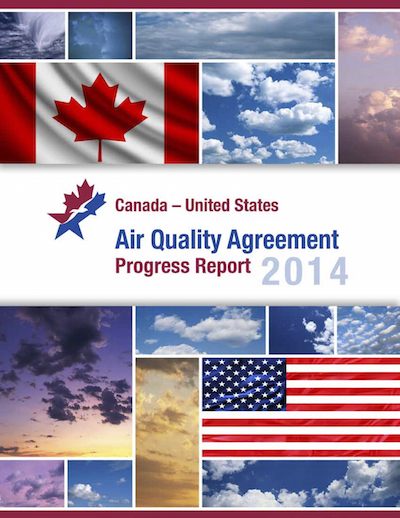 The International Joint Commission seeks public comments by July 31 on its newest air quality progress report, which champions recent efforts to meet emissions targets in the United States and Canada.
The International Joint Commission seeks public comments by July 31 on its newest air quality progress report, which champions recent efforts to meet emissions targets in the United States and Canada.
The Commission, which also resolves the use of water across the United States-Canadian border, will collect the comments and present them to U.S. and Canadian governments to help better implement the Air Quality Agreement.
The U.S. and Canada signed that agreement in 1991 when it addressed air pollution concerns that lead to acid rain.
These concerns included differences in emissions, pollutant impacts and regulations, said Barbara Rosen, supervisor of the Air Quality Evaluation Section at Michigan’s Department of Environmental Quality.
Both countries agreed to reduce chemical precursors to acid rain, including sulfur dioxide (SO2) and nitrogen oxides (NOx), which are released into the atmosphere through industrial facilities, electric utilities, gasoline vapors and vehicle exhaust.
In 2000, the International Joint Commission added another component to address air quality issues in the ground-level ozone, including smog.
So far, the Commission has continued reporting reductions in airborne pollutants.
According to the 2014 Progress Report, the U.S. reduced sulfur dioxide emissions by 78 percent between 1990 and 2012 and reduced nitrogen dioxides by 47 percent between 2000 and 2012.
Reductions in these airborne pollutants can diminish the effects of acid rain and improve the quality of air for breathing.
Rosen said she expects no future conflicts “until and unless future, tighter health-related pollutant goals result in new targets in the agreement.”
The International Joint Commission continues to measure air quality using rain, snow, fog, as well as ground level and atmospheric gasses.
The Commission invites readers to comment on its ongoing effort to improve air quality along the Canadian border and on air quality issues that need more focus.